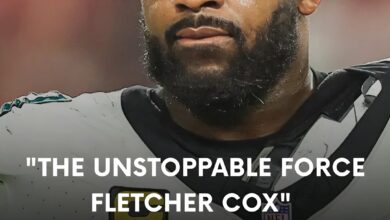Julian Edelman Never Played to Be Famous – Every Mistake, He Wrote Down—Because Being Forgotten Was His Greatest Fear
OPINION: This article may contain commentary which reflects the author's opinion.
Julian Edelman was never supposed to be a star. Drafted in the 7th round, picked 232nd overall, and converted from a college quarterback to a wide receiver, he entered the NFL as an afterthought. But beneath the underdog label was a man carrying a weight heavier than any stat sheet could reflect: the fear of being forgotten.
While the football world saw his diving catches and playoff heroics, few knew what Edelman kept tucked away in the bottom drawer of his locker—a small, black notebook. In it, he wrote down every mistake he made in practice, every missed route, every dropped pass. Not for coaches. Not for film review. But for himself.
“I didn’t want to be the guy they cut,” he once said to a teammate behind closed doors. “So I remembered every moment that could make them doubt me.”
That notebook became his private ritual. It was filled with scribbles like “late cut on 3rd down slant” or “wrong block angle – 11/23/11.” For seven years, he never skipped a page. While others flipped through highlight reels, Edelman studied his failures like sacred text. It wasn’t punishment—it was protection.
For Edelman, fame was never the fuel. Fear was. Not of injury. Not of pain. But of irrelevance. Of waking up one day and no longer mattering in a sport that forgets fast.
“He didn’t care about being liked,” said one former coach. “He cared about being irreplaceable.”
That drive turned him into the ultimate Patriot: clutch in the playoffs, MVP of Super Bowl LIII, and the spiritual engine of a dynasty. But even at the top, he never stopped writing. The notebook traveled with him to every stadium, often placed next to his cleats. After big games, he’d still jot things down—little things no one noticed but him.
When Edelman finally retired in 2021, he said goodbye to the field, but not the fear. In a moment of reflection, he admitted: “I didn’t play to be great. I played so I wouldn’t disappear.”
Maybe that’s why we still talk about Julian Edelman—not because he was perfect, but because he never let a single imperfection define him. In the margins of that worn-out notebook was a man who understood the cost of being seen—and the quiet courage it took to stay seen.



